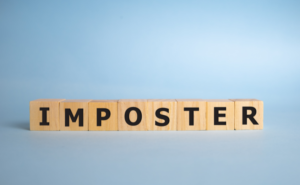I have stated many times in my blog, that I value and hold communication in very high regard. I personally believe that we struggle with communication because we don’t want to upset another person, or we don’t know what to say, so we just don’t say anything.
One of the often-overlooked pieces of communication is listening. Through the professional coaching program at the University of Miami, I learned how much of a key component listening is to communication. The curriculum had several modules dealing with listening, hearing, and communicating. As a coach, we are trained to listen for what our client is saying and even what they aren’t saying. We were trained to listen for hesitation, shifts in tone, or a pause. Often times, coaching sessions take place on the phone, so I can’t see my client’s facial or body expressions. Due to my training, and with lots of practice, I can now hear through the phone when my clients are smiling.
Not only did I need to learn these skills to become a proficient coach, but I had to break a decades-long habit…I needed to listen, and listen fully. I found in my conversations with people, I would listen to what they said and I would come up with my response while they were talking, or I would interrupt them because what I had to say was so important. The coaching curriculum taught me how to break these habits. My new habit is fully listening and listening without an agenda. Not only listening, but hearing what the other person is saying.
As I have previously said in my blog, we don’t even talk to each other anymore. We send text messages and emails. We infer the intonations of the texts and emails though our filters and not what we are hearing from the person sending the message. This has led to the decline of communication. We assume and misinterpret and then we either confront or we retreat. Either way we are not moving the conversation forward.
Being a coach has taught me how to really listen, and listen fully. When I am speaking with someone, I am fully engaged with what they are saying. My mind is not running full of thoughts. If I don’t understand what they are saying, I don’t hesitate to ask them for clarification. If I’ve upset them in some way, I ask “how can I make this better for you?”. If I disagree with what they are saying, I say, “I hear you, but can you see this from my perspective which is…”.
Not only are you having a dialogue with someone, but you are also listening to what they are saying and hearing what they are saying. We hear things and then we interpret them through our filters. I find that this interpretation is where some of the communication gets lost. We may think we have heard what the person said, but it is only an interpretation of what we’ve heard. This is when the clarification part comes in. This is when we need to stop thinking about what our response is going to be, but to fully listen to what is being said.
These are very hard habits to break, but I encourage you to give them a try. In order to be successful with communication, you need to listen fully and listen without an agenda. You need to be selfless with your listening. You want to hear what the other person is saying. Listening is far more important than talking.
There is a saying that God gave us two ears and one mouth so we can listen more and talk less. This is very true. I challenge you to try to listen fully and without agenda, and see if your communication skills improve, like mine did.



